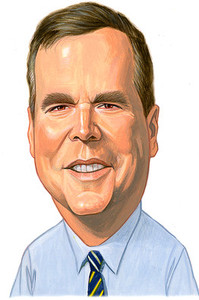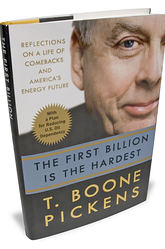Jeb Bush. Source of caricature: online version of the WSJ article quoted and cited below.
Clayton Christensen is a kindred spirit: he cares about making the world a better place through innovation in free markets. He research is almost always thought-provoking, and sometimes highly illuminating. So it speaks well of Jeb Bush that he has the good judgement to be reading one of Christensen’s books on education.
(p. A11) Currently [Bush is] reading “Disrupting Class: How Disruptive Innovation Will Change the Way the World Learns” — on his Kindle electronic reader.
For the full interview, see:
FRED BARNES. “THE WEEKEND INTERVIEW with JEB BUSH; Republicans Must Be a National Party Florida’s former governor on immigration, school choice, and the GOP’s limited-government foundation.” The Wall Street Journal (Sat., February 14, 2009): A11.
(Note: words in brackets added.)
The Christensen book mentioned on education, is:
Christensen, Clayton M., Curtis W. Johnson, and Michael B. Horn. Disrupting Class: How Disruptive Innovation Will Change the Way the World Learns. New York: NY: McGraw-Hill, 2008.
(Note: a revised edition of the book appeared in 2011.)







